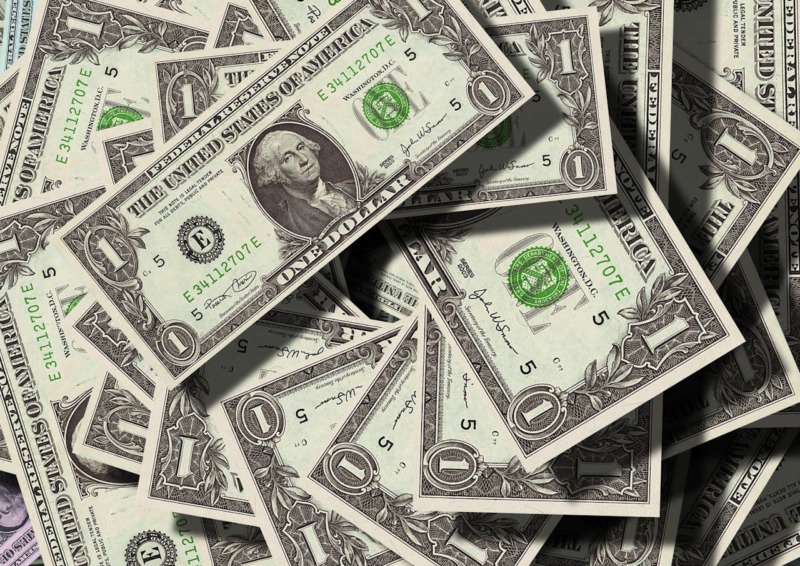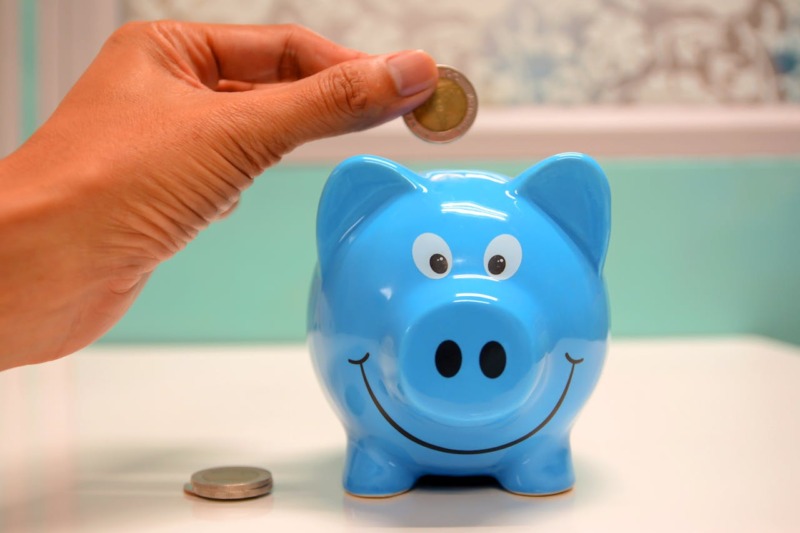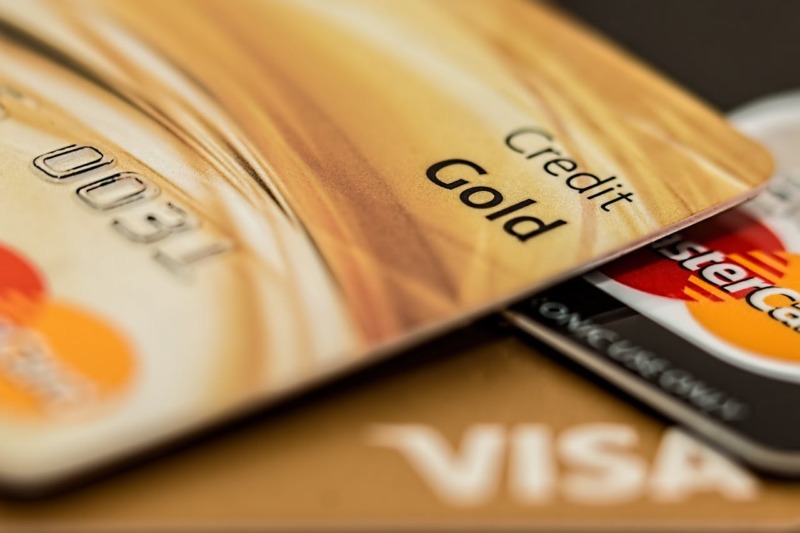


Anybody who lends money to another accepts a risk: that the borrower may fail to pay back what is owing. Moreover, the lender cannot use the loan amount during the term of the loan.
So why should anyone lend money?
It’s simple – nobody wants to lend money for free! If you borrow money from the bank, you have to pay interest. If you give money to the bank as a deposit, you will receive interest for it.
Broadly speaking interest comes in two forms:
this is the interest the bank pays you on the money in your current account or savings account.
this is what you have to pay when you borrow money from the bank. Business enterprises also pay interest on loans they take out.
The bank does not simply hoard the money in its current accounts and savings accounts – it uses the capital to extend credit to companies and individuals in need of loans. The bank charges higher interest rates on credits than it pays on the deposits in its accounts.
The difference between the two rates is the bank’s profit, which it uses to fund its operations. Acting as a financial intermediary between savers and borrowers is one of the core business fields of a bank.
Loans are taken out by many people. How much this costs – that is, what the interest rate is – depends mainly on the risk that the borrower might not repay it.
The larger the loan amount and the longer its term, the higher the interest rate usually is. The reason behind this is that such loans are a greater risk for the bank.
The more the bank trusts that the borrower will be able and willing to repay the loan, the less interest will be charged. Things like a stable income or owning one’s home add up to a good credit rating, and a bank will charge borrowers with good credit ratings lower interest rates.
In operating their credit business, banks also take into account the interest rates at which they themselves can borrow money from other banks and from the European Central Bank (ECB). Central banks set the key interest rates as appropriate in terms of monetary policy.
You are currently viewing a placeholder content from YouTube. To access the actual content, click the button below. Please note that doing so will share data with third-party providers.
More Information







Updates on exhibition, program & events
Financial Life Park Österreich
Wir sind der festen Überzeugung, dass das Internet für jeden verfügbar und zugänglich sein sollte, und sind bestrebt, eine Website bereitzustellen, die für ein möglichst breites Publikum zugänglich ist, unabhängig von den Umständen und Fähigkeiten.
Um dies zu erreichen, streben wir eine möglichst strikte Einhaltung der Web Content Accessibility Guidelines 2.1 (WCAG 2.1) des World Wide Web Consortium (W3C) auf AA-Niveau an. Diese Richtlinien erläutern, wie Webinhalte für Menschen mit einer Vielzahl von Behinderungen zugänglich gemacht werden können. Durch die Einhaltung dieser Richtlinien können wir sicherstellen, dass die Website für alle Menschen zugänglich ist: für Blinde, Menschen mit motorischen Beeinträchtigungen, Sehbehinderungen, kognitiven Behinderungen und mehr.
Diese Website verwendet verschiedene Technologien, die sie jederzeit so zugänglich wie möglich machen sollen. Wir verwenden eine Barrierefreiheitsschnittstelle, die es Menschen mit bestimmten Behinderungen ermöglicht, die Benutzeroberfläche (UI) der Website anzupassen und sie an ihre persönlichen Bedürfnisse anzupassen.
Darüber hinaus nutzt die Website eine KI-basierte Anwendung, die im Hintergrund ausgeführt wird und die Barrierefreiheit ständig optimiert. Diese Anwendung korrigiert den HTML-Code der Website und passt ihre Funktionalität und ihr Verhalten an die von blinden Benutzern verwendeten Bildschirmlesegeräte und an die von Personen mit motorischen Beeinträchtigungen verwendeten Tastaturfunktionen an.
Wenn Sie eine Fehlfunktion festgestellt haben oder Verbesserungsvorschläge haben, freuen wir uns, von Ihnen zu hören. Sie können sich per E-Mail an die Betreiber der Website wenden: info@financiallifepark.at
Unsere Website verwendet die ARIA-Attribute-Technik (Accessible Rich Internet Applications) sowie verschiedene Verhaltensänderungen, um sicherzustellen, dass blinde Benutzer, die die Website mit einem Screenreader besuchen, die Funktionen der Website lesen, verstehen und nutzen können. Sobald ein Benutzer mit einem Screenreader Ihre Website aufruft, wird er sofort aufgefordert, das Screenreader-Profil einzugeben, damit er Ihre Website effektiv durchsuchen und bedienen kann. Hier erfahren Sie, wie unsere Website einige der wichtigsten Anforderungen von Screenreadern erfüllt, zusammen mit Screenshots von Code-Beispielen:
Screenreader-Optimierung: Wir führen einen Hintergrundprozess aus, der die Komponenten der Website von oben bis unten lernt, um auch bei Aktualisierungen der Website eine kontinuierliche Konformität zu gewährleisten. In diesem Prozess stellen wir Screenreadern mithilfe des ARIA-Attributsatzes aussagekräftige Daten zur Verfügung. Zum Beispiel stellen wir genaue Formularbeschriftungen, Beschreibungen für ausführbare Symbole (Social-Media-Symbole, Suchsymbole, Warenkorbsymbole usw.), Validierungsanleitungen für Formulareingaben, Elementrollen wie Schaltflächen, Menüs, modale Dialoge (Popups) und andere bereit. Darüber hinaus scannt der Hintergrundprozess alle Bilder der Website und liefert eine genaue und aussagekräftige bildobjektbasierte Beschreibung als ALT-Tag (alternativer Text) für Bilder, die nicht beschrieben sind. Außerdem werden mithilfe einer OCR-Technologie (optische Zeichenerkennung) Texte extrahiert, die in das Bild eingebettet sind. Um die Screenreader-Anpassungen jederzeit zu aktivieren, müssen Benutzer lediglich die Tastenkombination Alt+1 drücken. Screenreader-Benutzer erhalten außerdem automatische Ansagen, um den Screenreader-Modus zu aktivieren, sobald sie die Website betreten.
Diese Anpassungen sind mit allen gängigen Screenreadern kompatibel, einschließlich JAWS und NVDA.
Optimierung der Tastaturnavigation: Der Hintergrundprozess passt auch den HTML-Code der Website an und fügt mithilfe von JavaScript-Code verschiedene Verhaltensweisen hinzu, um die Website über die Tastatur bedienbar zu machen. Dazu gehört die Möglichkeit, mit den Tasten Tab und Umschalt+Tab auf der Website zu navigieren, Dropdown-Menüs mit den Pfeiltasten zu bedienen, sie mit Esc zu schließen, Schaltflächen und Links mit der Eingabetaste auszulösen, mit den Pfeiltasten zwischen Radio- und Kontrollkästchenelementen zu navigieren und sie mit der Leertaste oder der Eingabetaste auszufüllen. Darüber hinaus stehen Tastaturbenutzern Menüs für die Schnellnavigation und das Überspringen von Inhalten zur Verfügung, die jederzeit durch Klicken auf Alt+1 oder als erste Elemente der Website beim Navigieren mit der Tastatur verfügbar sind. Der Hintergrundprozess verarbeitet auch ausgelöste Popups, indem er den Tastaturfokus auf sie verschiebt, sobald sie erscheinen, und verhindert, dass der Fokus außerhalb des Popups wandert.
Benutzer können auch Tastenkombinationen wie „M“ (Menüs), „H“ (Überschriften), „F“ (Formulare), „B“ (Schaltflächen) und „G“ (Grafiken) verwenden, um zu bestimmten Elementen zu springen.
Wir sind bestrebt, eine möglichst breite Palette von Browsern und unterstützenden Technologien zu unterstützen, damit unsere Benutzer die für sie am besten geeigneten Tools mit möglichst wenigen Einschränkungen auswählen können. Aus diesem Grund haben wir sehr hart daran gearbeitet, alle wichtigen Systeme zu unterstützen, die über 95 % des Benutzermarktanteils ausmachen, darunter Google Chrome, Mozilla Firefox, Apple Safari, Opera und Microsoft Edge, JAWS und NVDA (Screenreader).
Trotz unserer größten Bemühungen, es jedem zu ermöglichen, die Website an seine Bedürfnisse anzupassen, kann es sein, dass es immer noch Seiten oder Abschnitte gibt, die nicht vollständig barrierefrei sind, gerade barrierefrei gemacht werden oder für die es keine angemessene technische Lösung gibt, um sie barrierefrei zu machen. Wir arbeiten jedoch kontinuierlich daran, die Barrierefreiheit zu verbessern, indem wir Optionen und Funktionen hinzufügen, aktualisieren und verbessern sowie neue Technologien entwickeln und einführen. All dies dient dazu, im Zuge des technologischen Fortschritts ein optimales Maß an Barrierefreiheit zu erreichen. Bei Fragen wenden Sie sich bitte an info@financiallifepark.at
You need to load content from reCAPTCHA to submit the form. Please note that doing so will share data with third-party providers.
More InformationYou are currently viewing a placeholder content from Google Maps. To access the actual content, click the button below. Please note that doing so will share data with third-party providers.
More InformationYou are currently viewing a placeholder content from Mapbox. To access the actual content, click the button below. Please note that doing so will share data with third-party providers.
More InformationYou are currently viewing a placeholder content from OpenStreetMap. To access the actual content, click the button below. Please note that doing so will share data with third-party providers.
More Information